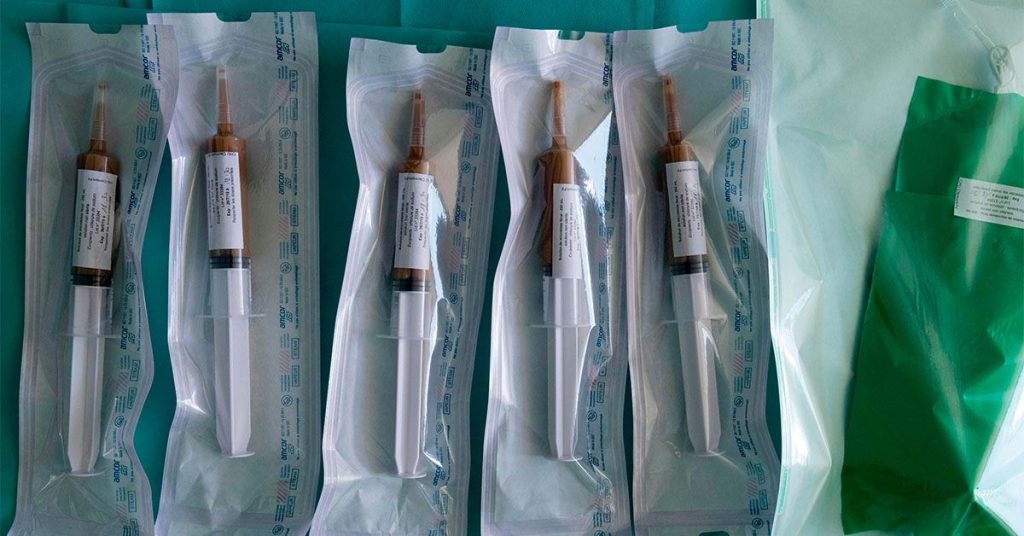Parkinson’s disease is a disabling condition that can become less responsive to treatment over time. Recent research has indicated that fecal transplants may have potential effects on the motor symptoms associated with Parkinson’s disease, suggesting a link between the gut microbiome and neurodegenerative diseases. A small clinical trial in Belgium found that Parkinson’s patients who received a fecal transplant from a healthy donor experienced improved motor symptoms compared to those who received a placebo. The study, published in eClinicalMedicine, showed that motor scores improved more significantly in donor transplant recipients compared to placebo recipients, with an improvement in colon transit time also observed.
However, mild gastrointestinal symptoms were common after the transplant, and fatigue worsened in donor transplant recipients after 12 months, raising questions about the potential negative effects of the treatment. The study followed 22 participants who received transplants from healthy donors and 24 who received their own fecal matter as a placebo, delivered via a tube inserted in the small intestine through the nose. While improvements in motor symptoms were noted in the donor transplant group, increased fatigue was also observed, potentially due to inflammatory mechanisms related to gut disorders.
One limitation of the study was that a strong placebo effect was observed, possibly due to the invasive nature of the treatment. However, researchers are planning to explore more subtle placebos in future studies to better assess the effects of fecal transplants. Previous research has shown some benefits of fecal transplants in Parkinson’s disease patients, with disturbances in the microbiome potentially playing a role in the disease’s progression. The gut can influence Parkinson’s disease through neural connections, the immune system, and the production of hormones, highlighting the importance of further research into the gut-brain connection.
Braak’s hypothesis of Parkinson’s disease suggests that the accumulation of alpha-synuclein in the body may start in the gut and spread to the nervous system and brain, leading to the development of the disease. The recent study’s findings support the idea that a single dose of a fecal transplant could have a lasting effect on Parkinson’s symptoms, potentially offering a new treatment approach for the condition. Further research is needed to explore the microbial compositions of participants and potential subgroups that may benefit most from this treatment, as well as larger multicenter trials to confirm the findings.
Researchers are hopeful that fecal transplants could offer a promising treatment option for not only Parkinson’s disease but also other neurodegenerative disorders such as multiple sclerosis and Alzheimer’s disease. Future studies may explore the use of fresh or frozen fecal samples to maximize the therapeutic benefits of the treatment. Overall, the study highlights the potential role of the gut microbiome in influencing neurodegenerative conditions and opens up new avenues for innovative treatments in the future.













